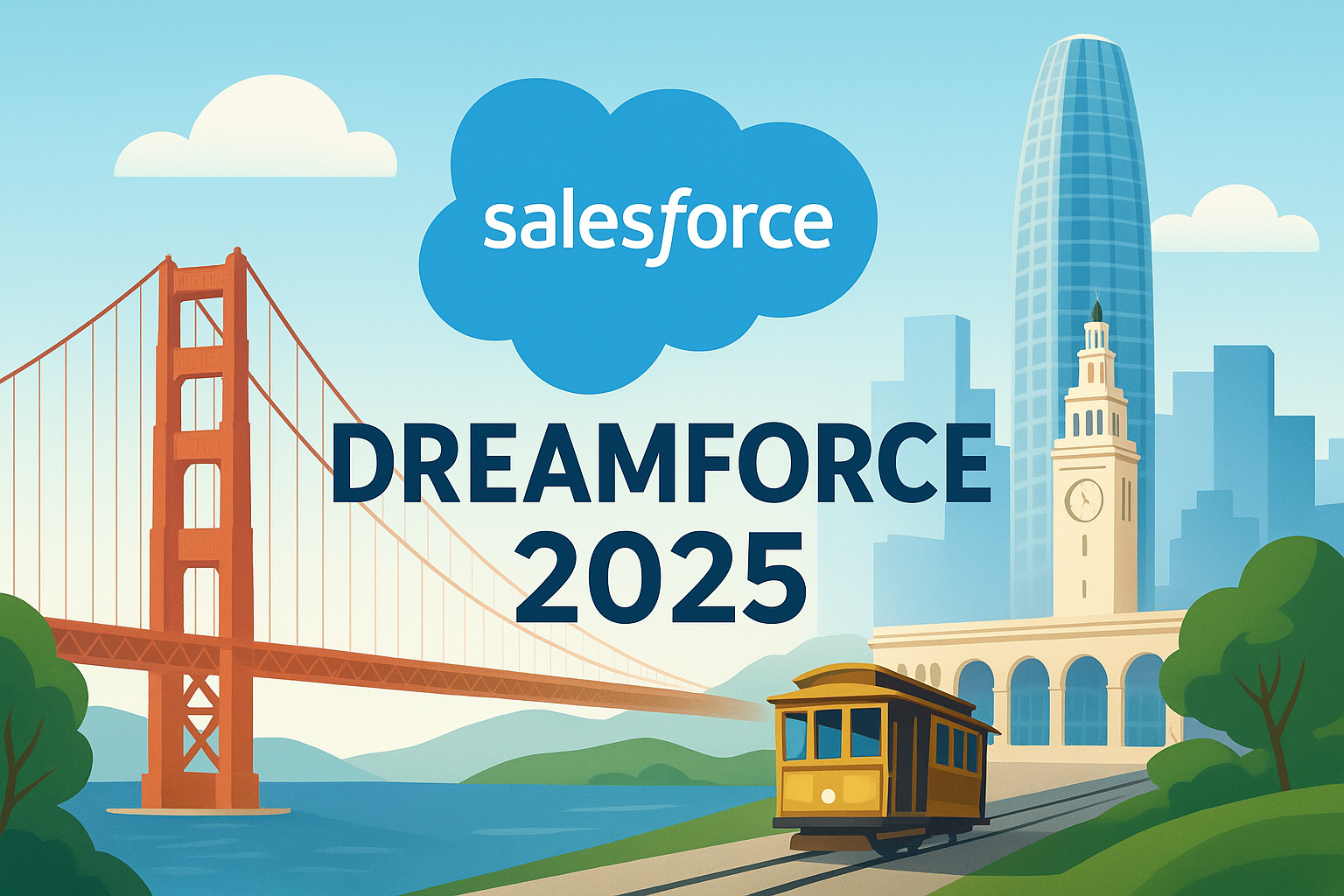This year’s Dreamforce has come to an end and cemented what we all knew - Salesforce is doubling down on AI agents, rethinking how data is used, and placing San Francisco firmly at the centre of the effort.
Key Talking Points
- Salesforce is moving from Data Cloud to Data 360, making data not just a storage or analytics backbone, but the context engine for next-generation AI agents.
- Agentforce 360 becomes the new operating model. A unified AI platform merging Data 360, Slack, and the Customer 360 apps to enable virtual agents that can reason, act, and collaborate with humans across sales, service, marketing, and operations. It’s Salesforce’s boldest step yet toward the agentic enterprise — and a shift away from pure manpower.
- Agentforce Commerce was also unveiled; empowering AI agents to deliver conversational buying experiences directly through platforms like ChatGPT and Slack, while maintaining full control over data and order flows. It’s a major move toward transactional AI and the future of digital commerce.
- For the broader Salesforce and digital ecosystem, value will shift from building custom features to mastering agentic workflows - designing, governing, and scaling AI agents safely and effectively. Partners who can blend data governance, model oversight, conversational UX, and rapid deployment will be in the highest demand.
- To fuel this evolution, Salesforce has pledged a US $15 billion investment in San Francisco over the next five years - building an AI incubator hub, re-skilling the workforce, supporting startups, and reinforcing the city’s position as the global AI capital.
What This Means for Talent
For those of us operating within the staffing and talent sector, this marks a clear pivot. New roles will emerge - Agent Architects, AI Governance Leads, Data Ethics Specialists, Agentforce Developers - while more traditional roles will be reshaped or fully automated.
AI agents will increasingly handle high-volume, repetitive tasks, freeing "the people" to focus on strategy, creativity, and relationship-driven work.
💭 Now’s the Time to Ask
- How ready is your organisation’s data stack (clean, accessible, contextual) to support AI agents?
- Do you have the skills in-house, or the right partners, for agentic architecture, hybrid reasoning, and agent lifecycle management?
- How will you govern and measure AI agent performance? Not just technically, but ethically and reliably, across customer-facing and internal contexts?
We’re not just witnessing a transformation of tech, we’re seeing a transformation of roles, expectations, and how work gets done.
It’s been said that the winners will be those who move thoughtfully, sooner, and build trust into the agentic enterprise - but one question remains... will the human touch still make consumers think twice?

